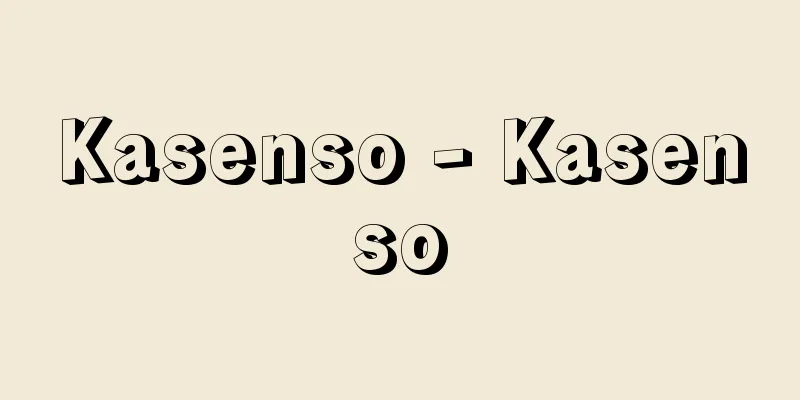Developmental dictatorship

|
A political style that holds that political dictatorship is necessary for the start of economic development. For a modern nation to develop a national economy, it must develop the necessary social and economic foundations. The costs of this (primitive accumulation, or original accumulation) have been raised by exploiting the masses of domestic farmers and workers, or by plundering colonies. This was the path to economic development in developed Western countries and Japan. However, Asian and African countries that gained independence after World War II are no longer able to have colonies like Western countries. On the other hand, respect for human rights, such as labor rights, has come to be accepted as a global norm. From the late 1960s, the Park Chung-hee regime (1961-79) in South Korea, the Suharto regime (1965-98) in Indonesia, and the Pahlavi dynasty in Iran, among others, embarked on government-led modernization. It sought to shape the national economy through foreign capital and exports while suppressing the political demands of the people, and the main actors in politics were the dictators and their parties. The main actors in policy formation were bureaucratic elites who had studied in Western countries, and special agencies, special police, and military security bureaus suppressed the masses with naked violence. As for ideology, they used emotional, broad-ranging, and widely interpreted ideas that encouraged national unity, such as South Korea's "Unification by defeating North Korean communism" (unification by defeating North Korean communism) and Indonesia's five founding principles, Panca Sila (faith in God, humanitarianism, popular sovereignty, nationalism, and social justice). In developmental dictatorships, the people were denied the role of politics. However, the government intermittently encouraged the people to reform land and raise wages. However, as the economy develops, the middle class inevitably grows. They demand democratization, such as improved working conditions, freedom of speech, publication, and assembly, and the overthrow of corrupt governments, against the oppressive regimes that had existed up until then. Democratization movements spread among the general public, but the government suppressed them on a large scale (such as the Gwangju Uprising in 1980). As a result, the democratization movement gained momentum. As seen in the birth of the Kim Young-sam regime in South Korea in 1992 and the downfall of Suharto in Indonesia in 1998, when the oppressive regime finally collapses, a democratic regime emerges. However, as in the Iranian Revolution (Islamic Revolution) in 1979, a popular but restorationist regime may emerge. [Ryuhei Hatsuse] [References] | | | | | | |Source: Shogakukan Encyclopedia Nipponica About Encyclopedia Nipponica Information | Legend |
|
経済発展のスタートには政治的独裁が必要であるとする政治スタイル。近代国家が国民経済を育成しようとすれば、そのための社会的、経済的な基盤を整備しなければならない。その費用(原始的蓄積、または本源的蓄積)は国内の農民や労働者といった大衆から搾取するか、あるいは植民地から収奪することによって捻出(ねんしゅつ)してきた。これが、欧米先進国や日本の経済発展の道であった。しかし、第二次世界大戦後に独立したアジア、アフリカ諸国は、西欧諸国のように植民地をもつことはできない。その反面で、労働者の権利など人権の尊重が世界的な規範として受け入れられるようになっている。 1960年代後半から、韓国の朴正煕(ぼくせいき/パクチョンヒ)政権(1961~79)、インドネシアのスハルト政権(1965~98)、イランのパフラビー朝(パーレビ朝)などは政府指導型の近代化に乗り出すことになった。それは国民の政治的な要求を抑圧しながら、外資導入や輸出主導によって国民経済を形成しようとするものであり、政治の主体は独裁者とその政党にあった。政策形成の主体は、欧米諸国への留学経験のある官僚エリートなどであり、特務機関、特殊警察、軍治安部などが赤裸々な暴力をもって大衆を抑圧した。イデオロギーとしては、韓国の「勝共統一」(北朝鮮の共産主義に打ち勝っての統一)や、インドネシア建国の五原則であるパンチャ・シラ(神への信仰・人道主義・人民主権・民族主義・社会的公正)などの情緒的で解釈の幅が広く、国民の団結を促すものが使用された。 開発独裁体制においては国民は政治の主体として否定されてきた。しかし政府から国民へ、間欠的に農地改革、賃金引上げなどの働きかけも行われていた。ところが、経済が発展してくればかならずそこには中間階層の成長が伴う。彼らはこれまでの抑圧政権に対して、労働条件の向上、言論・出版・集会の自由、腐敗政権打倒などの民主化要求を掲げるようになる。国民一般にも民主化運動が広がるが、政府はこれを大規模に弾圧する(1980年の光州事件など)。その結果は、民主化運動がいっそう盛り上がることとなる。92年の韓国における金泳三(きんえいさん/キムヨンサム)政権の誕生や、98年インドネシアでのスハルト失脚などの例にみられるように、最後に抑圧政権が崩壊するとき、民主政権が登場する。しかし、1979年のイラン革命(イスラム革命)のように、民衆的ではあっても復古的な政権が登場することもある。 [初瀬龍平] [参照項目] | | | | | | |出典 小学館 日本大百科全書(ニッポニカ)日本大百科全書(ニッポニカ)について 情報 | 凡例 |
Recommend
Gauss meter
It is a type of magnetometer that is a measuring d...
Zenjoji Temple
This temple is of the Soto sect of Buddhism, Daijo...
Voice tone - Scary
A type of performing art that accompanies theater...
Manueline style - Manueline style
A Portuguese architectural style from the early 16...
Base issue - crazy issue
This refers to the problems that arise from the e...
Gällivare - Gällivare (English spelling)
A mining town in the Norrland region of northern ...
Causal therapy
...treatment to relieve symptoms of illness and r...
Standing tree - Ryuboku
Trees that are still growing on the land, or a gr...
Joint selection - Kyosen
〘noun〙 The act of sifting agricultural products in...
Photosensitivity Disorder
A general term for diseases in which exposure to s...
supply shock
...At that time, the prevailing view was that eco...
Lake Kamafusa
The reservoir of the Kamafusa Dam on the Goishi Ri...
RNA polymerase
An enzyme that synthesizes complementary messenge...
Currency exchanger blown vermilion silver
…At that time, 1 shu of silver was equivalent to ...
Allgemeine Zeitung - Allgemeine Zeitung
…During its heyday from the late 18th century to ...









